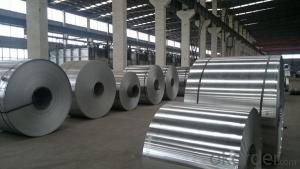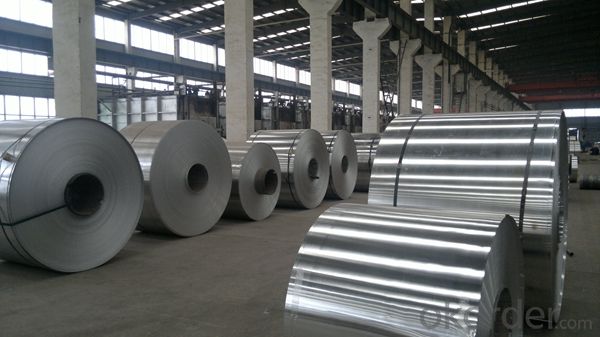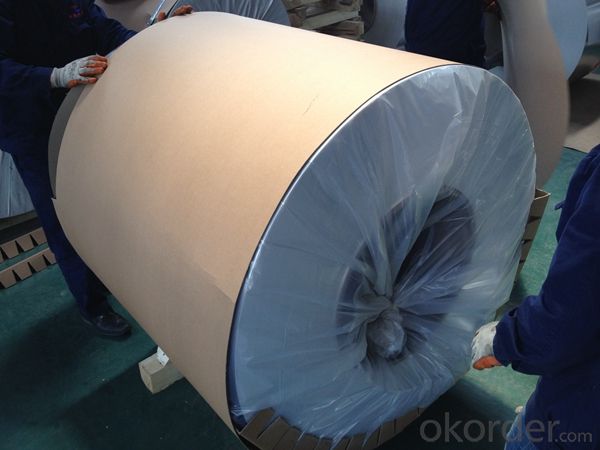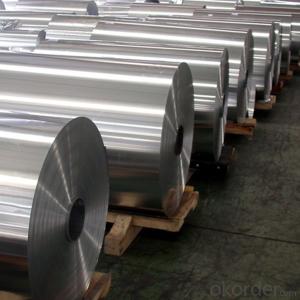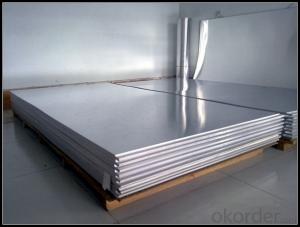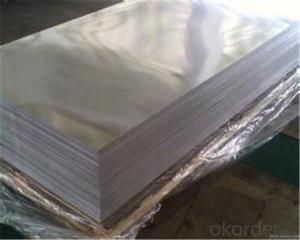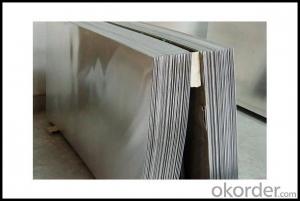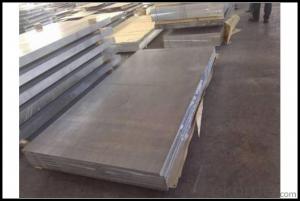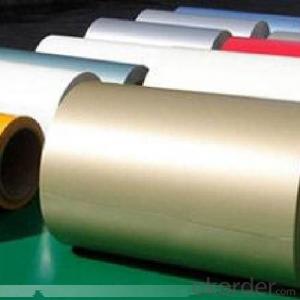Aluminum Sheets Mississippi - Aluminum Rolls Buy from China Supplier Low Price
- Loading Port:
- Shanghai
- Payment Terms:
- TT OR LC
- Min Order Qty:
- 5 m.t.
- Supply Capability:
- 100000 m.t./month
OKorder Service Pledge
OKorder Financial Service
You Might Also Like
Specification
1.Structure of Aluminum Rolls Buy from China Supplier Low Price
Aluminum Sheets are strengthened and cut from raw materials with different alloys, such as AA5005, AA5052, etc. They are easy for processing in different shapes, good in intensity and can be quickly installed. Aluminium Sheets for Energy Saving Curtain Walls are good in energy saving, weather resistance, fire resistance, easy for maintenance and with many colors.
Aluminium Sheets for Energy Saving Curtain Walls are widely used in construction of metal walls, metal ceilings, car decoration, advertizing panels, etc.
2.Main Features of Aluminum Rolls Buy from China Supplier Low Price
•High intensity
•Easy to be processed and shaped
•Weather resistance
•Anti-pollution & environment protection
3. Aluminum Rolls Buy from China Supplier Low Price Images
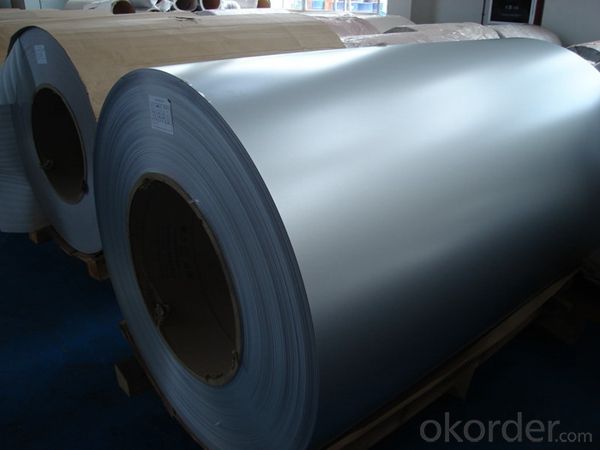
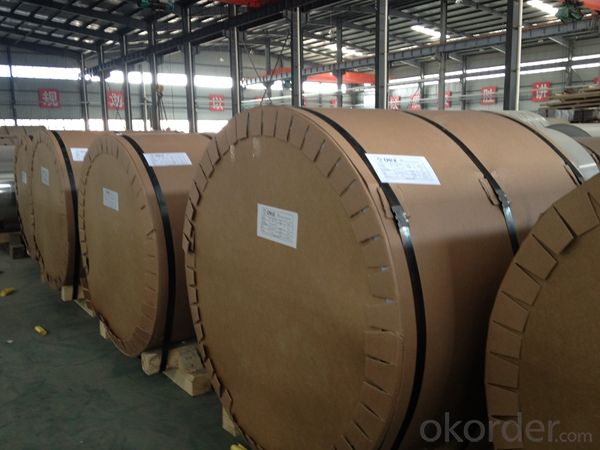
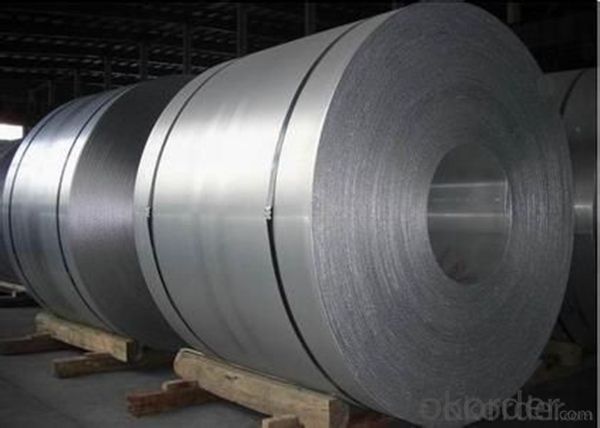
4.Specification of Aluminum Rolls Buy from China Supplier Low Price
Alloy Number | AA5XXX |
Temper | H12, H14, H16, H18, H22, H24, H26, H32, HO, F |
Thickness | 0.1mm – 500mm |
Width | 10mm- 2200mm |
Standard | GB/T3880-2006, ASTM, ISO, EU standard |
5.FAQ
A.What about inspections to guarantee quality?
For each order for Aluminum Sheets with Mill Finished Surface AA5XXX, we will arrange strict inspection for raw materials, inspection during production and inspection for finished goods.
With requirement of customers, we also can arrange the third party inspection.
B.What about delivery?
We will put order for Aluminum Sheets with Mill Finished Surface AA5XXX in production schedule after order gets confirmed against copy of TT or L/C. Normally it takes about one month for production. Exact shipment schedule is different based on different sizes and quantity.
C.What is the MOQ?
5 tons for each size.
D. Where have you exported aluminium sheets?
We have exported aluminum sheets to many countries. Main markets include South East Asia, Middle East, North America, South America, etc.
- Q: Can aluminum sheets be used for solar reflectors?
- Indeed, solar reflectors can utilize aluminum sheets. With its high reflectivity and exceptional resistance to heat, aluminum emerges as an optimal material for such purposes. The reflectiveness of aluminum sheets aids in redirecting and intensifying sunlight onto solar panels or other solar equipment, thereby maximizing their energy efficiency. Moreover, the lightweight and durable nature of aluminum renders it effortlessly manageable and fitting for outdoor applications.
- Q: The question asks about the duration aluminum sheets can last and how this compares to the lifespan of other materials.
- <p>The lifespan of aluminum sheets can vary significantly based on the environment and usage conditions. Generally, aluminum sheets have a long lifespan, often lasting 50 years or more without significant deterioration when properly maintained. This durability makes aluminum sheets a popular choice for construction and manufacturing applications. Compared to other materials, such as steel, aluminum is lighter and more resistant to corrosion, which can extend its lifespan in certain environments. However, steel may be more suitable for applications requiring high strength, while aluminum excels in applications where weight and corrosion resistance are priorities.</p>
- Q: How could two pieces of aluminium flakes be welded together?
- You can use argon arc welding, connect the positive pole with alternating current,aluminum wire as the welding wire.
- Q: This question asks for a list of various adhesive types that are suitable for bonding aluminum sheets together.
- <p>There are several types of adhesives used for bonding aluminum sheets, including epoxy adhesives, which are strong and resistant to heat and chemicals; acrylic adhesives, known for their flexibility and UV resistance; cyanoacrylate or super glue, which offers fast bonding; polyurethane adhesives, providing excellent adhesion and durability; and silicone adhesives, which are great for high-temperature applications. Each type has its specific properties and applications, making them suitable for different bonding requirements and environmental conditions.</p>
- Q: Maybe you didn't know but in the year 2025 the earth's population will be up to 12 billion people, which is double what we have now. And i am doing a project on Aluminum, and I have to know if there is enough AL for this many people in the year 2025. So will there be enough AL in the world to support us all?
- Aluminium is the third most abundant element on earth after oxygen and silicon. I am quite sure that we will not run out of aluminium in the future. Oxygen - or at least pure good quality oxygen - is probably a more worrying scenario.
- Q: Is it possible to use aluminum sheets as a material for flooring?
- <p>Yes, aluminum sheets can be used for flooring materials. They are known for their durability, resistance to corrosion, and ease of maintenance. Aluminum floors are often used in commercial and industrial settings due to their strength and ability to withstand heavy loads. They are also favored for their slip resistance and non-flammable properties, making them a safe choice for various applications. However, they may not be as common in residential settings due to cost and the鍐板喎 feel underfoot compared to traditional flooring materials like wood or carpet.</p>
- Q: What are the different types of alloys used for powder-coated aluminum sheets?
- There are various types of alloys used for powder-coated aluminum sheets, including 3003, 5052, and 6061.
- Q: This question asks for methods to prevent rusting on aluminum sheets while they are being stored or transported.
- <p>To prevent rusting on aluminum sheets during storage and transportation, follow these steps: Store the sheets in a dry, cool environment away from moisture and humidity. Use protective coverings such as plastic wraps or sheets to shield them from dust and water. Avoid stacking them directly on the ground; use pallets or racks to keep them elevated. Regularly inspect the sheets for any signs of moisture or damage. If possible, apply a protective coating or sealant specifically designed for aluminum to create a barrier against corrosion. Proper handling and packaging can also reduce the risk of scratches or dents that could lead to rust.</p>
- Q: Where is a good website to get a brand new sealed in box Aluminum macbook.
- there are none, i know i sucked it up and went to apple, worth every penny. good luck!
- Q: So I want to solder aluminum cans together for this project I have. What tools will I need?
- a soldering iron or gun. use a low melting solder. it comes in various grades. go to Menard's or Home Depot they have it.
Send your message to us
Aluminum Sheets Mississippi - Aluminum Rolls Buy from China Supplier Low Price
- Loading Port:
- Shanghai
- Payment Terms:
- TT OR LC
- Min Order Qty:
- 5 m.t.
- Supply Capability:
- 100000 m.t./month
OKorder Service Pledge
OKorder Financial Service
Similar products
Hot products
Hot Searches
Related keywords
